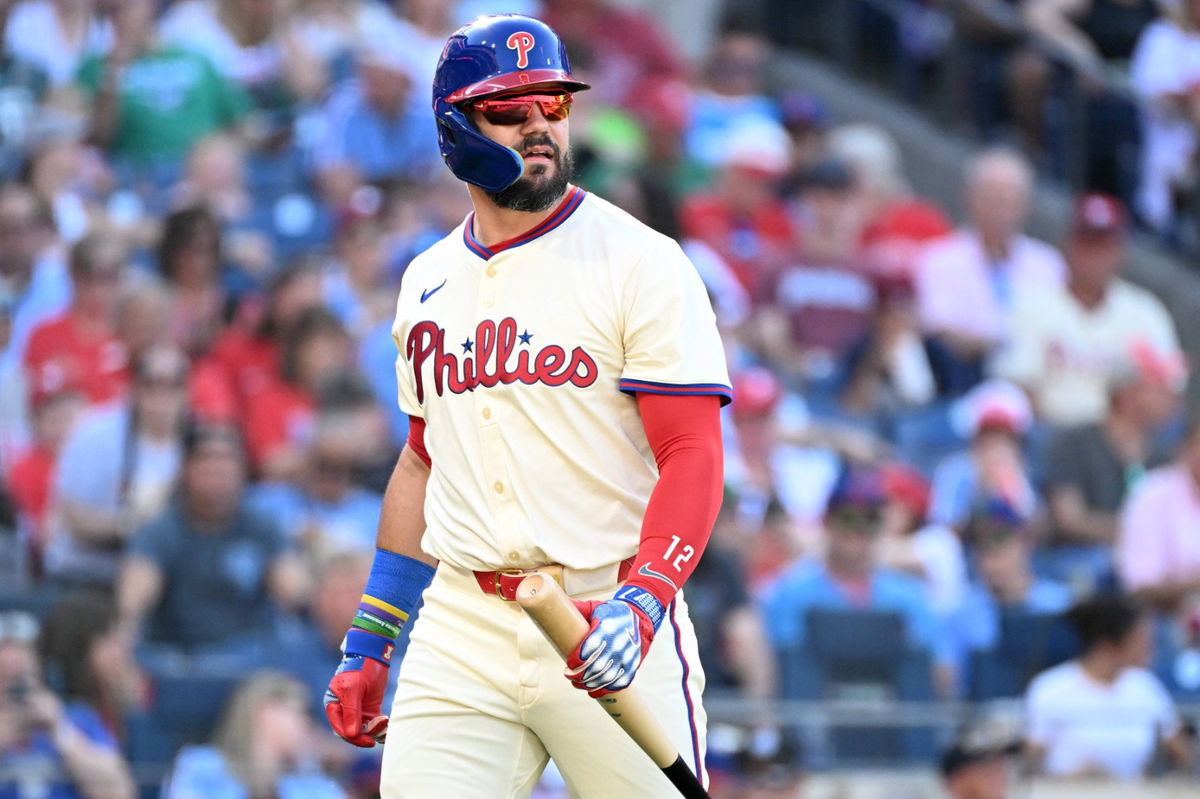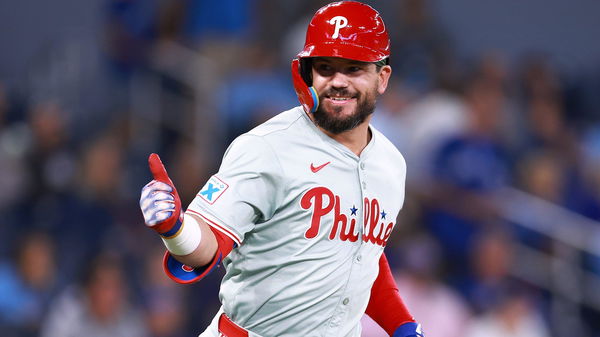
Imago
Credit: IMAGO

Imago
Credit: IMAGO
Kyle Schwarber’s legacy with the Phillies is about to change. Their NL rival, the Mets, is planning to take baseball’s most feared left-handed slugger away from Philadelphia. The Phillies are facing a hard decision ahead because their payroll can only be between $50 and $55 million. They can either keep their best power hitter or keep their financial flexibility for pitching help. So, Schwarber’s free agency is a key moment that could change the NL East.
Watch What’s Trending Now!
Loyalty in baseball remains a finite commodity. According to ESPN analyst David Schoenfield, the Mets recognize an opportunity that extends beyond statistical acquisition. “Think the Mets would love to steal Schwarber away from the Phillies? Addition and then subtraction from your rival. Would Schwarber leave the Phillies for the enemy? Players are a lot less loyal than we’d like to believe,” Schoenfield wrote, emphasizing that New York can hand someone to the Phillies while signing in Schwarber.
Schwarber’s season made him one of the most dangerous hitters in baseball, hitting .240/.365/.563 with a career-high 56 home runs and 132 RBIs. He doesn’t need a high batting average to change games, which is something his critics often forget. He was the Phillies’ most reliable offensive weapon during important stretches because he could punish mistakes and come through in tough situations.
In a must-win NLDS Game 3 against the Dodgers, Schwarber broke his slump with two towering homers against Yoshinobu Yamamoto and Clayton Kershaw’s fastballs.
Meanwhile, the Mets scored two fewer runs than they did in 2024, even with Juan Soto and Pete Alonso. So, the front office of David Stearns thinks Schwarber is the offensive spark that can make a lineup that was fifth in the NL in runs better.
“Adding Schwarber could take it to the next level,” Schoenfield noted, framing the move as both an enhancement and a calculated strike against Philadelphia’s competitive foundation.
Schoenfield’s analysis is based on a strategic logic that shows a clear weakness in the Mets’ offense.
Even with a star-studded lineup, their poor performance shows that the team needs to add another elite left-handed power bat who can hit home runs and drive in runs.
Schwarber is expected to make $32 million a year, which is a lot of money for a 32-year-old power hitter. But for the Mets, the math works out in their favor: putting him next to Soto would make it hard for other teams’ pitchers to deal with, and it would also weaken a rival in the same division.
On the other hand, the Phillies will have to change the way they play offense without their most reliable slugger. It’s not clear if the management in Philadelphia will look for other options or just accept Schwarber’s departure. But the effects of his decision will change the paths of both teams in the National League East.
Kyle Schwarber and the Phillies’ payroll problem
The financial situation in Philadelphia is worse than the feelings or the record. Kyle Schwarber came out of the season saying he wanted to stay with the Phillies, but the way the team pays its players now makes it hard for him to come back. President Dave Dombrowski has to make tough choices about the roster, and Schwarber may be the one who has to pay for it.
The Phillies have already set aside about $247 million for commitments in 2026, which puts them right at the luxury tax limits, where penalties go up a lot.
The third level of the luxury tax is $304 million, and for every dollar over that, the penalty goes up to 50%. This structural ceiling makes it impossible for Dombrowski to spend the last $50 to $55 million on multiple roster needs. This is especially difficult when he has to deal with free agents like J.T. Realmuto, Ranger Suarez, and Harrison Bader, as well as Schwarber’s expected $32 million annual request.

Imago
Credit: IMAGO
When looking at contracts that can’t be changed, the math gets even harder.
Nick Castellanos has a $20 million obligation, and Taijuan Walker’s $18 million salary is still on the books. This means that the team is $15 to $20 million short before they can make any major roster changes. Getting value out of these commitments will require a lot of work in the front office, which could be too expensive.
Dombrowski is stuck with a structural problem that isn’t easy to fix. The same financial problems that made previous competitive windows possible are now making it hard for the organization to keep its most powerful offensive weapon. This means that market forces, not performance, will decide Schwarber’s future in Philadelphia.






